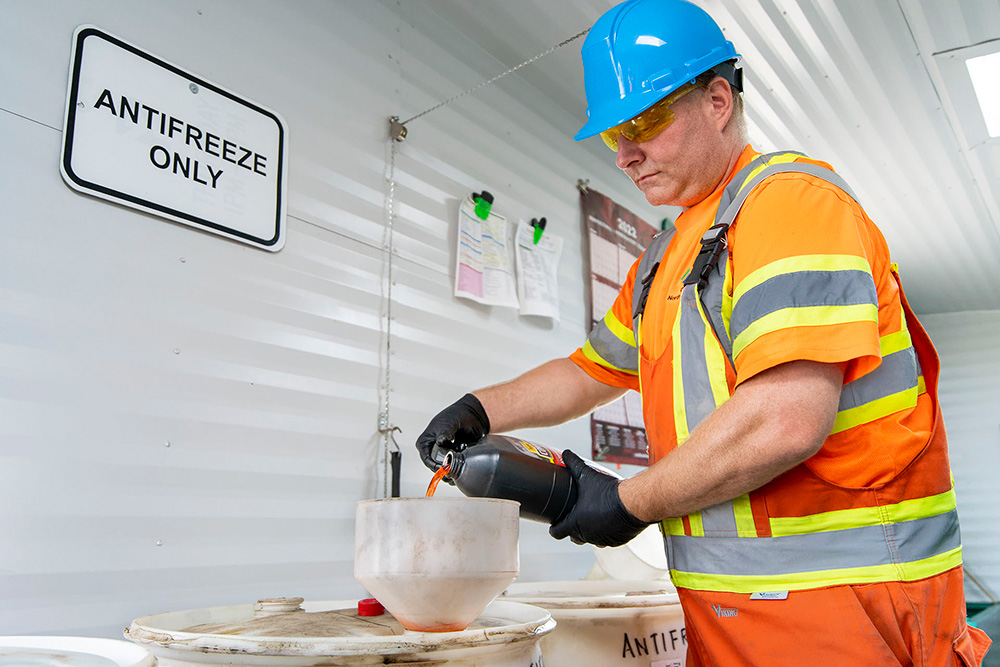Spotlight on Used Antifreeze
Antifreeze is a key component to keeping our vehicles running smoothly, especially during the colder months. But what happens to the used antifreeze once it’s drained from our engines?
Used antifreeze (also known as glycol) can contain heavy metals and other contaminants due to circulating through your engine. These can contaminate watersheds and soil if not disposed of properly. But antifreeze is highly recyclable! In fact, 2.9 million litres have been recovered in Saskatchewan since 2014!
How to Recycle Used Antifreeze
Bring your used antifreeze (and its container!) to a drop-off location near you. For large quantities, you can also contact a registered collector who will make arrangements to pick up your used oil and antifreeze materials at your business or on your farm.
Remember that used oil and antifreeze should be kept separate as when they’re mixed, they are hard to recover.
You can use your original containers to store used products. Be sure to label them, and always keep them closed. It’s important to remember that animals are attracted to the sweet taste/odour of antifreeze, and it’s very toxic to them.

What Happens to Used Antifreeze
Used antifreeze can be recycled and used over and over again. Once it reaches the processor, they clean it up, take out the impurities that have leached out of your engine, and remake it into new antifreeze. Itʼs cost effective and saves resources!





